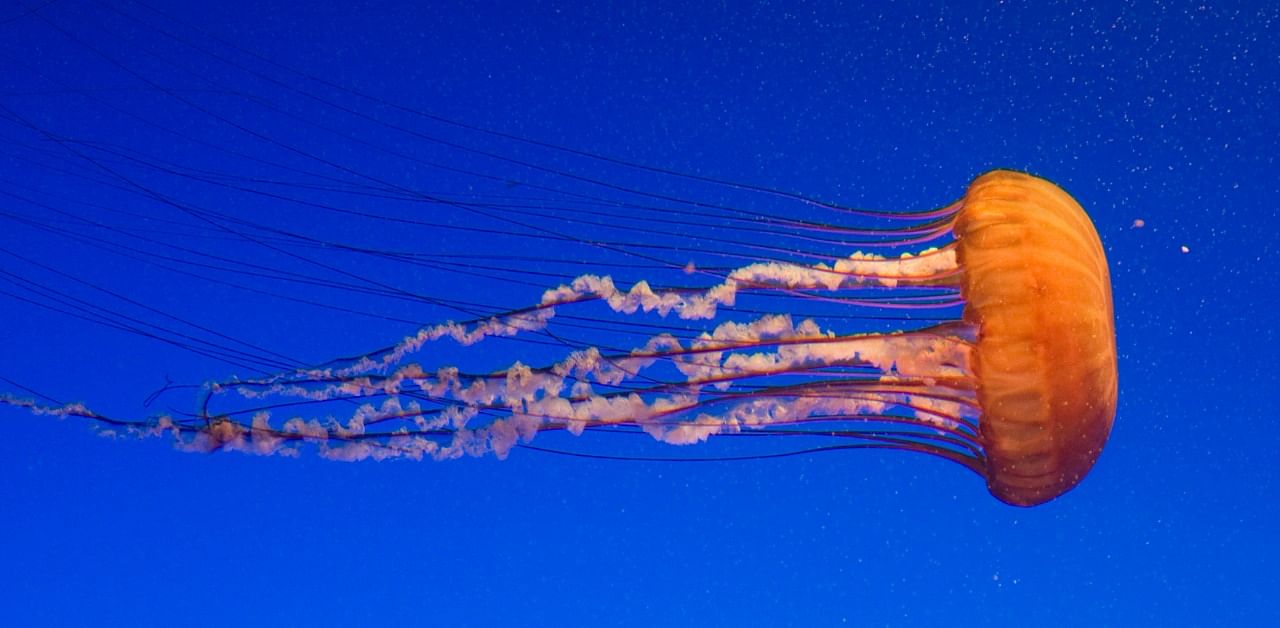
Jellyfish appear to be adding a sting in Goa's tourism revival tale.
As many as 90 tourists and beachgoers have been stung by jellyfish, schools of which have been preying along Goa's famed beaches over the last 48 hours, forcing the state's private lifeguard service to issue an advisory and advise caution while wading into sea water.
"Over 90 cases of jellyfish stings were reported along the coast between yesterday and today. Drishti lifesavers posted along the beach were inundated with first aid cases related to jellyfish stings," a statement issued by the private lifeguard agency Drishti Marine late on Thursday said.
"In one particular incident which occurred in Baga, a male who went parasailing developed chest pain and experienced breathing difficulty after being stung by a jellyfish. As he was short of breath, oxygen was administered while an ambulance was called for and the victim was rushed to the hospital," the statement said.
The jellyfish attack comes at a time when Goa's tourism prospects are witnessing a revival of sorts after the crippling pandemic and lockdown, with tourists slowly trickling into the state.
Most of the cases were reported along the state's most popular beach stretch from Sinquerim beach to Baga beach in North Goa. A jellyfish sting often results in mild irritation, but a sting from particularly toxic species of jellyfish can require expert medical care.
The advisory issued by Drishti Marine has urged tourists "to be cautious of the presence of jellyfish that could possibly be present in the waters or along the shoreline".
"If stung by a jellyfish inform the nearest lifesaver or approach the lifesaver tower.
Wash the stung area with hot water (as hot as you can stand it) as heat further breaks down the toxins. Generously spray the stung area with vinegar. It is known to diffuse any poison that may be more active in the nematocysts present in the tentacles," the advisory also said.